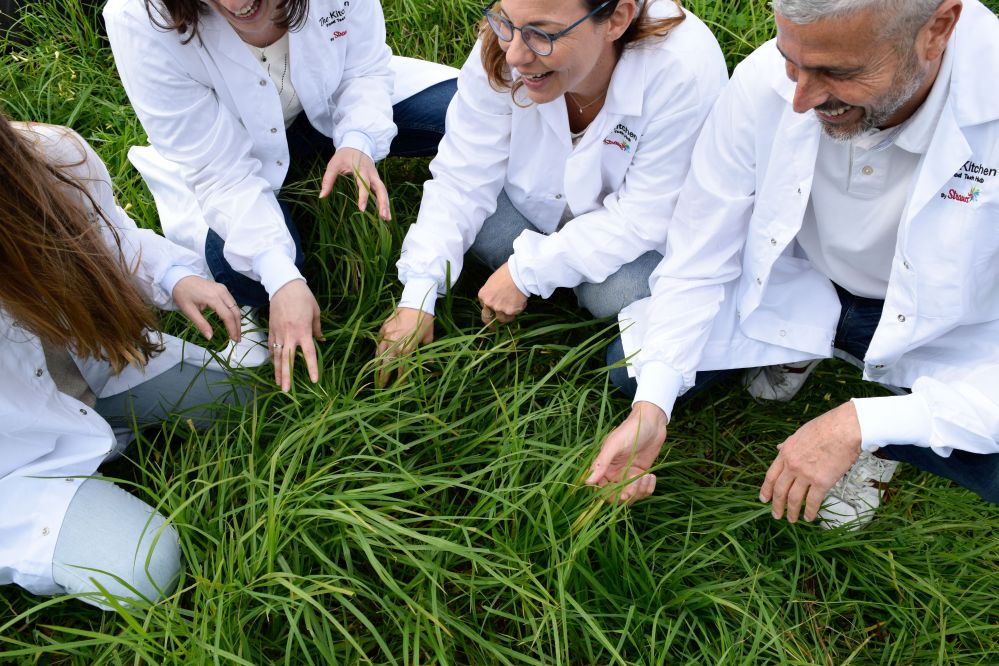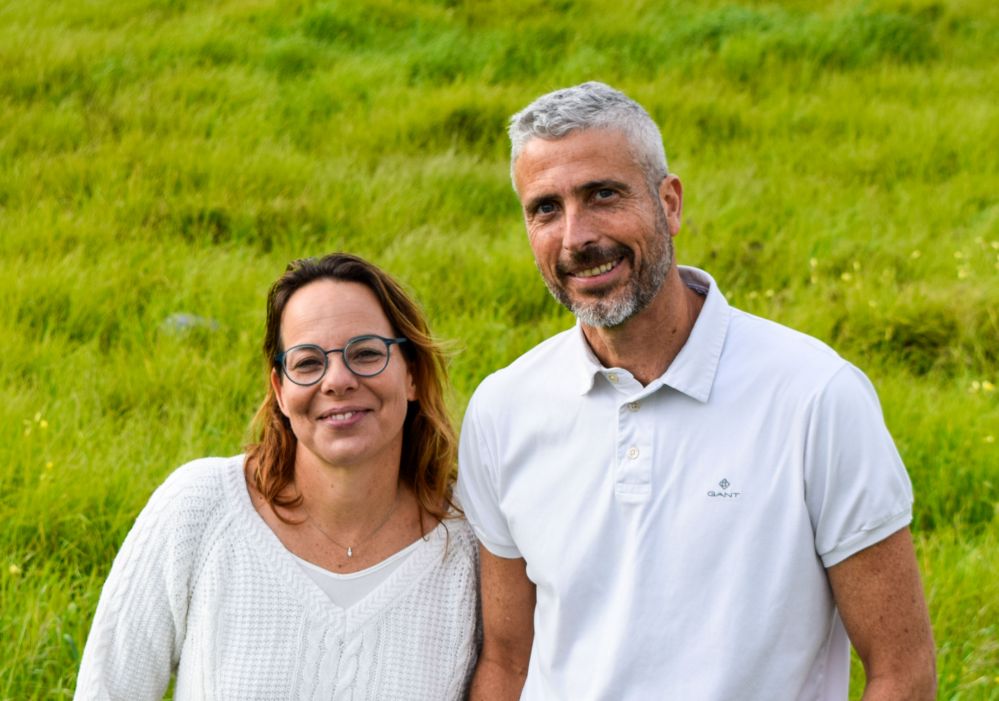Israeli startup Day 8 has emerged from stealth armed with $750,000 pre-seed funding from The Kitchen FoodTech Hub to develop an approach it claims could change the economics of RuBisCO protein by extracting it from discarded crop leaves.
One of the most abundant proteins on the planet with a protein digestibility (PDCAAS) score and functionality (binding, emulsifying, foaming, gelling) rivaling animal proteins such as egg and casein, RuBisCO is found in green leaves from duckweed to alfalfa, spinach and tomatoes.
Despite its ubiquity, however, it has not become the plant protein of choice for the food industry, in part because it is present in such small quantities in leaves [1-5%], which necessitates processing huge amounts of biomass to obtain a small amount of protein.
To compound the challenge, RuBisCO is also difficult to extract, as firms must rupture leaf cells to remove cellulose, chlorophyll, polyphenols and other components without denaturing the protein in order to get to a neutral-tasting off-white powder that can be used in food formulations.
“RuBisCO is the most craved plant based protein due to its superior qualities and abundance, and it has been a focus of The Kitchen for a while. When we met Day 8 we felt that this is the right team with the right technology to materialize the enormous business potential of RuBisCO protein.” Amir Zaidman, chief business officer, The Kitchen Foodtech Hub
‘The challenge is how do you produce it at scale’
According to Day 8, cofounded by Daniel Rejzner (CEO) and Dana Marom (CTO) in summer 2023, the economics start to look far more favorable if you use upcycled agricultural waste as a source material and deploy a more efficient extraction process, although it is not sharing details of what this looks like at this early stage.
Rejzner told AgFunderNews: “The elephant in the room with plant proteins is that most of them still don’t taste so good. And I know from my previous companies [Rejzner cofounded price transparency app Zollo and shopper insight platform Ourcart] consumer adoption is everything.
“You can drive people to buy your product with marketing dollars but if they don’t like it, there’s not going to be a repeat purchase. RuBisCO is widely acknowledged as the holy grail of proteins; it’s non-allergenic, it’s a complete protein and it’s got amazing functionality; the challenge is how do you produce it at scale?
“We believe the only way to solve that challenge is to leverage upcycled material from existing agricultural crops. If you think about it, it’s crazy that we’re growing so much biomass [to make sugar, tomatoes, bananas etc], but only using a subset of it. The bits we don’t harvest for [human] food are sometimes used for [animal] feed, but most of the time, we’re just throwing them away.”
He added: “Our calculation is that there’s 2.7 trillion tons per year of agricultural residue that can be used, and if we reverse engineer that to calculate how much protein can be produced, it’s 11 times more than the entire soy protein production globally.”
Collecting and transporting unwanted crop leaves obviously has some costs associated with it, he conceded: “It’s not free, right, so we’ve been working diligently over the past six months to get to a list of about 12 crops where we believe that this approach is significantly cheaper than growing crops [such as lemna as a source of RuBisCO].”
At scale, he said, “We think we can reach prices that are at a par with bulk soy protein, which is between $3-5 per kilo, and our vision is that eventually, we can replace soy together with this far more sustainable alternative at cost parity, and obviously RuBisCO is a better product in terms of functionality.”

‘A partnership model’
Asked about the economics of sourcing RuBisCO from lemna/duckweed—a fast-growing aquatic plant used by startups such as Plantible—he said: “Lemna has a lot of advantages as a raw material, because it can grows very fast year-round and you can control the protein content. But there’s still CapEx involved to build all the ponds you need to grow it in commercially.
“The model we’re thinking about is deployed by [Dutch sugar beet processor] Cosun [Beet Company], which acquired a small startup [Green Protein B.V.] that had a process for extracting RuBisCO from sugar beet leaves. Now this is a model that I like very much because their cost is marginal. They are already growing sugar beets and they have access to the leaves that contain RuBisCO.”
He added: “We like this as a case study because the way we’re looking at Day 8 is essentially building a partnership model for growers in which we can source their agricultural residue and process it to make RuBisCO rather than investing in our own growing operations.”
As for RuBisCO sources, owing to how quickly RuBisCO protein denatures, he said, “Once a crop is harvested, we need to process the discarded leaves very quickly. It’s not something that can be shipped overseas or that can be stored in a warehouse.”
Day 8’s extraction process is “pretty crop agnostic,” he claimed. “The difference [in the process] between different crops is the parameters of the different steps, but the basic steps and equipment are the same.”
‘A protein that is practically taste-neutral’
Over the years, several players have attempted to commercialize RuBisCO products, with some such as FYTO growing lemna for animal feed, others focusing on whole food powders that can be used in ‘green’ smoothies and other human food products, and some attempting to produce neutral-tasting isolates for a wider range of foods (Rubisco Foods, Rubisco Proteins, Leaft Foods, DryGro, Sustainable Planet, and Microterra among others).
Florida-based Lemnature AquaFarms (formerly Parabel)—which had been working on developing more neutral tasting protein powders from lemna—recently filed for bankruptcy. However, San Diego based Plantible has been expanding its new lemna farm and processing facility in Texas and recently launched a plant-based egg replacer called Rubi Whisk containing RuBisCO and teamed up with ICL Food Specialties to create a clean label alternative to methylcellulose.
Application potential
According to Rejzner: “We’ve been able to achieve a protein that is practically taste neutral. I can’t share exactly how we’re doing it yet. The challenge is how do you separate out the color while maintaining protein functionality? But I can say we’re not using solvents.”
As for food applications for RuBisCO protein, he said: “The first big market opportunity is plant-based dairy products such as milk alternatives, which are sensitive to taste and color, so RuBisCO offers a clear advantage [over some other plant proteins] as you can include higher levels of complete protein [without negatively impacting taste] and you get a nice foaming effect for your cappuccino.
“We also see opportunities in plant-based meat both as a protein source but also as a replacement for methylcellulose as a binding agent. Then there is egg replacement [where RuBisCO is combined with other plant-based ingredients]; people would be more than happy to get rid of eggs if they could, the pricing is up and down, they’re messy and there are food security issues.
“And the fourth area is protein enhanced products, which is a huge market.”
What’s next?
So what is the focus for the coming year at Day 8?
“This is a company with a short time to market compared to most ‘foodtech’ companies,” claimed Rejzner. “We expect to be selling in our second year. We’ve completed the proof-of-concept (POC) phase, so the next phase is pilot scale production so we can go from grams to kilos, so we’re kicking off our $2.6 million seed round to support that.
“We have a pretty decent list of companies waiting [for larger quantities of RuBisCO protein for sampling]. The objective with the seed round is to do the pilot scale production and POCs with clients and emerge with commercial contracts.”





